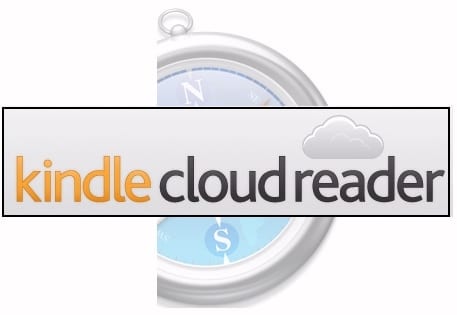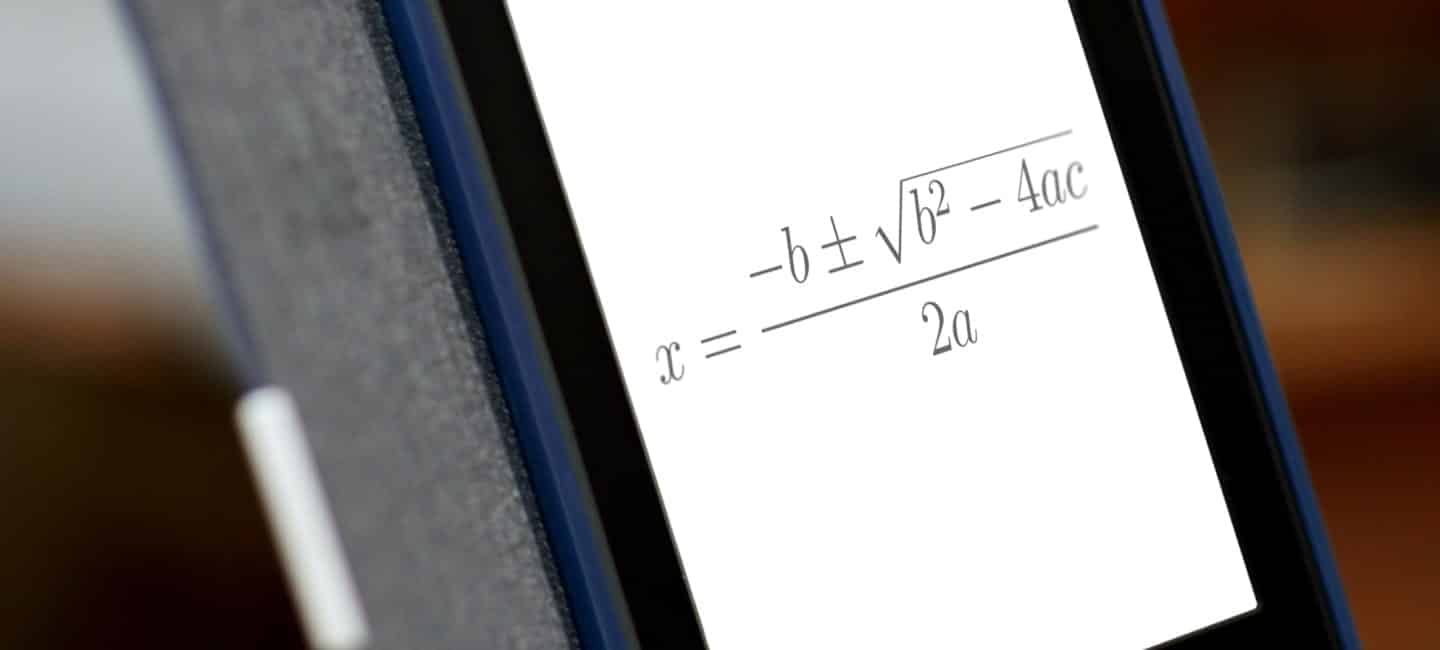Does Anyone Actually Use Cloud Reading Apps?


The first apps were released shortly after Apple started extorting a vig from everyone with a media app on iOS, and they were designed to allow users to read ebooks with a web browser, and thus outside Apple’s control.
And they worked okay for that purpose. But that was five years ago; is anyone using them now?
The other Nathan doesn’t think so:
I never understood the purpose of using a cloud reader instead of an app. Why would anyone want to read using a web browser rather than using a dedicated app?
It’s not like there are very many devices that have web browsers and don’t support installing apps. I guess most people feel the same way because these days you almost never hear anything about cloud readers anymore. I don’t think very many people actually use them.
What with Kobo and B&N letting their cloud reading apps die, it’s easy to conclude that no one using cloud reading apps any more (if the apps were used heavily, they would still be supported).
Nevertheless, I still use cloud reading apps on occasion.
Play Books, for example, doesn’t have an app for Windows, and so I have to use the web app if I want to read an ebook from Play Books on my laptop. To be honest, the experience leaves me feeling meh, but I also don’t hate it enough to stop.
And the Kindle Cloud Reader is sometimes a good way to get early access to a paper book I bought from Amazon. (With some titles, you can read the ebooks while the paper book ships.)
What about you? Do you ever use cloud reading apps anymore? If so, why use a web app instead of a native app?



Comments
John Howell August 28, 2016 um 9:49 am
Amazon’s Look Inside is essentially a cloud reading app for a book sample. It works well for reading a short snippet of a book. I use it quite a bit.
Bill Smith August 28, 2016 um 10:11 am
I use cloud reading apps all of the time … Linux user, Chromebook user.
Amazon and Google Play cloud reader apps are adequate. B&N & Kobo’s cloud readers were crap from the start and were abandoned out of mercy for the poor customers.
Another case of entitled "Just because *I* don’t use it, it must be useless."
Thorsten Muecke August 28, 2016 um 10:15 am
Despite I’m seeing lots of use cases für cloud reading apps I barely use them. Why should I? There is a lovely Kindle App on my iPad, which I have with me any time. And I – like many other readers I assume – don’t like switching reading environments.
george zunic August 28, 2016 um 12:40 pm
honestly do not even know what a cloud reading app is. only use the amazon cloud reader on the pc to more easily see what is in my amazon cloud library. do not download any books to the pc. read the digital books on my 7″ hdx tablet, but more often these days on the fire phone, whether at home or out and about.
Bill Smith August 28, 2016 um 2:41 pm
A "Cloud Reader App" just means reading the ebook within your web browser (Firefox, Chrome, etc.) instead of reading on, say, your Kindle app on your PC or Android phone.
Amazon and Google Play are the most popular options; Overdrive is also decent.
Many Firefox users add the Epub Reader add-on and sideload the Epub into their browser. MagicScroll.net is also an online epub reader where you upload your Epub file and read in the browser; it supports Chrome, Firefox and Internet Explorer, I believe.
Smashwords also allows you to read ebooks within your browser if the author uploaded a Word doc file to the Meatgrinder — Epub files can only be downloaded and read on an ebook reading program like Calibre or FB Reader or using a "read in browser" extension like Epub Reader and MagicScroll.
It is worth noting that Smashwords' online reader is probably the most forgiving, as it supports even very, very old versions of web browsers, while the Amazon Kindle online app wants a relatively recent-ish browser — last time I checked, they want at least Firefox 7, although I believe they jumped it up to requiring Firefox 11?? (I have no idea what Google Play’s minimum browser version is.)
Jaina Kirke August 28, 2016 um 3:07 pm
I used the Kindle Cloud Reader all the time when I had a terrible, boring day job and needed some way to distract myself from my misery. I’d use it to bribe myself into doing my job: fifteen minutes of actual work earned me 5 minutes of reading.
It was a stopgap at best (sadly, even with spending so much of my day reading I was still one of the highest producers) and I would never go back to that job, but for the time being when I didn’t have access to a dedicated e-reader, it was a life saver.
Roberto August 28, 2016 um 5:15 pm
What I would really love to have is a system to synchronize my books I am reading, over all the hardware and software I am using… (insert wishful *pfffff* here!)
For instance, if I finish my epub on page 23 during my lunch break on my Yotaphone e-ink backside, it would be great to start reading it on that very page later that day back home on my Kindle.
That would need some sort of a cloud system, but one that is not bound by format (epub, mobi, pdf etc.) or hardware system (any Linux clone like Android, Kindle, iOS etc.)
Very probably wishful thinking… 🙁
Nate Hoffelder August 28, 2016 um 5:27 pm
It’s technically possible, but I don’t see everyone getting on board, no.
Vikarti Anatra August 29, 2016 um 8:07 am
Dreams…I also had such dreams.
But have to find something works arleady.
Bookmate (you could upload your own FB2/EPUBs here) have very limited abilities for working collections and quotes and can’t process PDFs at all. It also couldn’t search inside books at all.
Kindle Personal Documents (I have books which are not from Kindle Store so this is a must) have issues with collections and quotes. Their Cloud reader and PC/Mac apps doesn’t support them (Mobile apps and E-Ink Kindles do)
Google Play Books…no collections at all. limited abilities for working with quotes (this issue improved recently). Limit of 1000 user-uploaded books.
iBooks – iOS-only, later- Apple-only. Iit wasn’t big problem when I checked it. Non-workable syncing of user documents was.
My current interim solution is just drop requirement for reading on my Mac directly. I just put Nexus 10 in cradle near my computer to read when I at my current workplace. When I need access to my books at other times, they are just synced to me.
On software side I use Bookari (it was named Mantano Reader before). It only support Android and iOS (including Android-based Onyx devices, it doesn’t look good on them but it works).
Collection and quote management is great and can be done via web too. Cloud Sync works rather good. I convert anything what is not EPUB or PDF to EPUB (except DJVU – it’s get converted to PDF).
Roberto August 29, 2016 um 5:03 pm
Mantano Reader is a great app, but unfortunately I can´t install it on my Kindle (unless I massively brake the firmware and set up a completely different system, presumably?)…
My solution for cloud syncing is at the moment to use my brain cloud: I remember where I stopped reading and turn the pages forward on the other (next) device… 😀
Vikarti Anatra August 30, 2016 um 10:52 pm
If you mean 'on your Kindle Fire' then you can. Bookari (their current name) is in Amazon AppStore. If you mean eInk Kindle, yes, impossible. You need eInk tablet with Android like one of Onyxes which gets reviewed on The Digital Reader from time to time (and if you install it on Onyx, you will find out that GUI has some minor issues with eInk display) .
Brain Cloud doesn’t help with quotes
RK August 28, 2016 um 10:12 pm
I use Amazon Cloud Reader all the time, actually.
Vikarti Anatra August 29, 2016 um 7:45 am
I used Bookmate’s Cloud Reader (they have one, in addition to their iOS/Android apps) when I used Bookmate
Feda August 29, 2016 um 7:54 am
Don’t use any of those. I only purchase DRM free books so I can have them on any device I want.
Nate Hoffelder August 29, 2016 um 9:03 am
You can use the Play Books web app with those ebooks; you just have to upload them first.
Frank August 29, 2016 um 10:24 am
It is best to have your content accessible from anywhere. Because of the niche usage of desktop Linux, there likely will never be an app for it, but Linux users read as well.
S. J. Pajonas August 29, 2016 um 10:31 am
I have a bunch of older readers that use it. Just because one person doesn’t use something, doesn’t mean it’s not being used and loved by others.
MikeJ August 29, 2016 um 11:41 am
I read in a browser at work. Since I don’t have admin control on my laptop here, and can’t install a dedicated reader. Sometimes I have a very large model to run, and not much else to work on. I loved Kobo’s cloud reader since most of my library is from them. Now I just use a chrome extension to read epubs I’ve already stripped.
Shirley Dulcey August 29, 2016 um 2:34 pm
I primarily read Kindle books on my Fire tablet when I’m on the go. But every once in a while I want to spend a bit of time with my current book-in-progress when I’m on my desktop computer, and that’s when the Cloud Reader comes in handy. I don’t use the app often enough on Windows to bother installing it, and there is no app for Linux.
S. Sammis October 13, 2016 um 6:43 pm
Ebooks of any format only account for about eight percent of my total reading. Of those ebooks, they are primarily ones I’ve purchased and downloaded. I am also a regular user of my local library and sometimes the only format they have available is a cloud based ebook through Overdrive. I personally detest Overdrive’s cloud reader but sometimes it’s the only option. Sometimes as well, older books that I’m interested in reading are only available as cloud ebooks through Google Play or the Internet Archive — though both are getting better about providing downloadable copies.